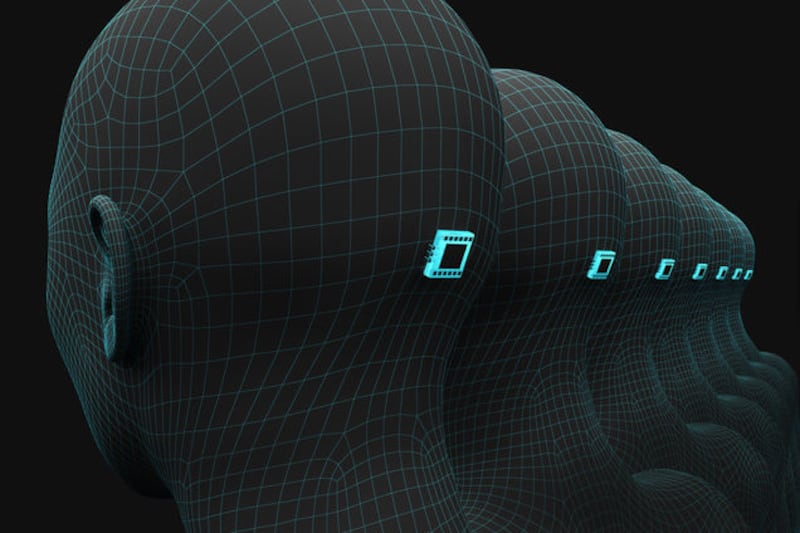ANY book titled To Be A Machine: Adventures among Cyborgs, Utopians, Hackers and the Futurists solving the Modest Problem of Death is bound to pique the curiosity of the existentially inclined.
Appropriately, it was the birth of author Mark O'Connell's first child which prompted him to check up on the folks who believe we can overcome the flesh-bound flaws of the human condition by man-made means.
Welcome to the world of transhumanism: from cryogenic freezing and mind uploading to bio-hacking and cybernetic enhancement, there are all manner of men – and, as O'Connell (38) discovers, it's nearly always men – working on ways to 'upgrade' the human race with the help of science and technology.
They hope to help us live longer, live better and perhaps even live forever, provided some immense post-Singularity (the point at which technological progress suddenly achieves runaway velocity) artificial intelligence doesn't just wipe us out altogether.
The Dublin journalist and literary critic interviews an eclectic selection of key players for the book while visiting a warehouse of cryogenically frozen human bodies (and heads, for those on tighter budgets), the Silicon Valley labs endeavouring to translate our brains into up-loadable code, hanging out with a group of 'grinders' – self-proclaimed cyborgs sporting a selection of amusingly redundant technological implants – and touring the US in a decrepit coffin-shaped camper van with the first transhumanist presidential hopeful.
Despite striking out in hope, O'Connell's natural scepticism about transhumanism filters through into a hugely entertaining series of reports from the war rooms and front-line trenches of a movement whose ultimate goal balances precariously on the razor's edge between biological emancipation and technological enslavement.
"In a way, my ideal trajectory for the narrative in the book was for me to become in some way converted to transhumanism," reveals the author of his 2018 Wellcome Book Prize winning tome.

"I thought that would have been a really interesting thing to happen and I wanted to at least be open to it – but it just never transpired.
"At certain points I was like, 'oh, maybe I should get an implant' – not because I wanted to, but because it would make for something interesting to write about.
"But ultimately I thought that would have been slightly forced, a kind of a journalistic stunt or whatever. Which is probably just a way of explaining my cowardice."
However, while O'Connell might not have been up for braving unlicensed surgery in order to be able to perform such 'superhuman' feats as opening a door remotely and other simple tasks already entirely achievable via smartphone, at least one of his readers was more enthused by his reports on 'grinder' tech.
"I got an email from a barrister in London," he tells me. "She'd never heard of transhumanism, or biohacking or the grinder movement or anything like that. But her reaction to the book was to go out and get an RFID [Radio-frequency identification] chip inplanted in her hand.
"She told me about this in a slightly jaunty way, like: 'I'm probably London's first cyborg barrister!' That was not the kind of reaction to the book I would have predicted or intended."
While cybernetics and other transhumanist concepts explored in To Be A Machine are very much part of the science-fiction zeitgeist – witness the popularity of tech-fuelled dystopian fare like Westworld, Altered Carbon and Humans and the appropriately un-killable Terminator franchise – they also echo existential concerns explored in religious texts and classic literature.
With his PhD in English literature, O'Connell is ideally placed to highlight such narrative through-lines as a 'way in' for readers previously unfamiliar with transhumanism.
"It took me a while to realise that maybe coming at it from this humanistic kind of literary angle might be 'a feature rather than a bug', as they say in the tech world," he chuckles.
"I'm translating this hyper-rationalist techno-utopian world into terms that I can understand and hopefully the reader can identify with as well.
"Transhumanism really is for me the displacement of yearnings and anxieties that have traditionally been the preserve of religion. But, overwhelmingly, that's a sore point for transhumanists.
"They see themselves as the heirs to enlightenment. In their kind of hyper-rationalist thinking, any notion of spiritualism or mysticism is a complete anathema."
Yet, despite such differences in perspective, apparently the majority of those featured in To Be A Machine have embraced it as an even-handed account of their endeavours penned by an open-minded 'non-believer'.
"It was always a bit of a concern that people would feel like I'd misrepresented them," comments O'Connell.
"It would be very easy to dismiss or ridicule people who are doing something as extreme or eccentric as transhumanism. But my American publisher sent a copy of the book to everyone who I spoke to or wrote about.
"Not all of them got back to me but of those who did, generally their reaction was quite positive actually, which was quite gratifying."
And, having just become a father for a second time, fans will soon be able to read the next instalment of the Irishman's quest to get to grips with the kind of world his children are set to grow up in.
"It's a book about apocalyptic anxieties and people who are convinced in one way or another that civilization is on the verge of collapse," O'Connell explains of his current project.
"It's a way of looking at our present moment of uncertainty in depth through things like climate change and political instability."
:: To Be A Machine: Adventures among Cyborgs, Utopians, Hackers and the Futurists solving the Modest Problem of Death is out now, published by Granta.





